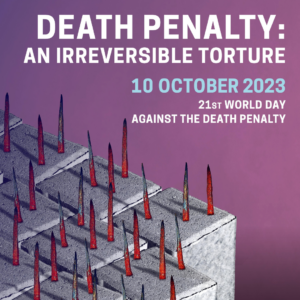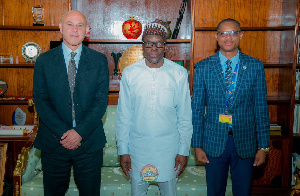
Efforts towards Abolition: Our recent trip to Ghana
- News
- 25 Jul 2022
As part of our ongoing work in Ghana, last week our Co-Executive Director Saul Lehrfreund travelled to Accra to meet with key-stakeholders and discuss progress being made towards abolition of the death penalty and how The Death Penalty Project could support local efforts. He was joined by Prof. Carolyn Hoyle; Director of The Death Penalty Research Unit (DPRU) at University of Oxford, Dr. Kofi Boakye; Senior Lecturer of Criminology at Anglia Ruskin University and Meg Gould; US Lawyer and Judicial Law Clerk.
Background:
Ghana is classified as ‘abolitionist de facto’, the term given by the UN for a state that has not carried out an execution for over 10 years. The last executions were carried out in 1993. It is amongst 22 other abolitionist de facto countries in Africa, many of whom continue to impose death sentences, but are unlikely to resume executions.
In March 2022, the Criminal Offences (Amendment) Bill 2022 and the Armed Forces (Amendment) Bill 2022 were tabled in Ghana’s Parliament, the bills, currently under consideration, seek to replace the death penalty with life imprisonment for all ordinary and military crimes.
To assist Ghana’s members of Parliament and the Constitutional, Legal and Parliamentary Affairs Committee in considering these important bills, The Death Penalty Project produced a Memorandum, jointly with Prof. Carolyn Hoyle and the co-founders of the Africa Institute for Crime, Policy & Governance Research, Dr. Kofi Boakye, Senior Lecturer of Criminology at Anglia Ruskin University, and Justice Tankebe, Associate Professor of Criminology at the University of Cambridge. The Memorandum has also been endorsed and supported by the Commonwealth Lawyers Association and reflects on the findings of the previous Constitution Review Commission in Ghana, which recommended abolition of the death penalty.
In June, The Death Penalty Project was honoured to meet with the Chairman and members of Ghana’s Constitutional, Legal and Parliamentary Affairs Committee at our office in London, where we discussed the new bills and how, beyond the Memorandum, we could assist local efforts to see capital punishment removed. The meeting was extremely positive and set the plans in motion for our trip to Ghana.
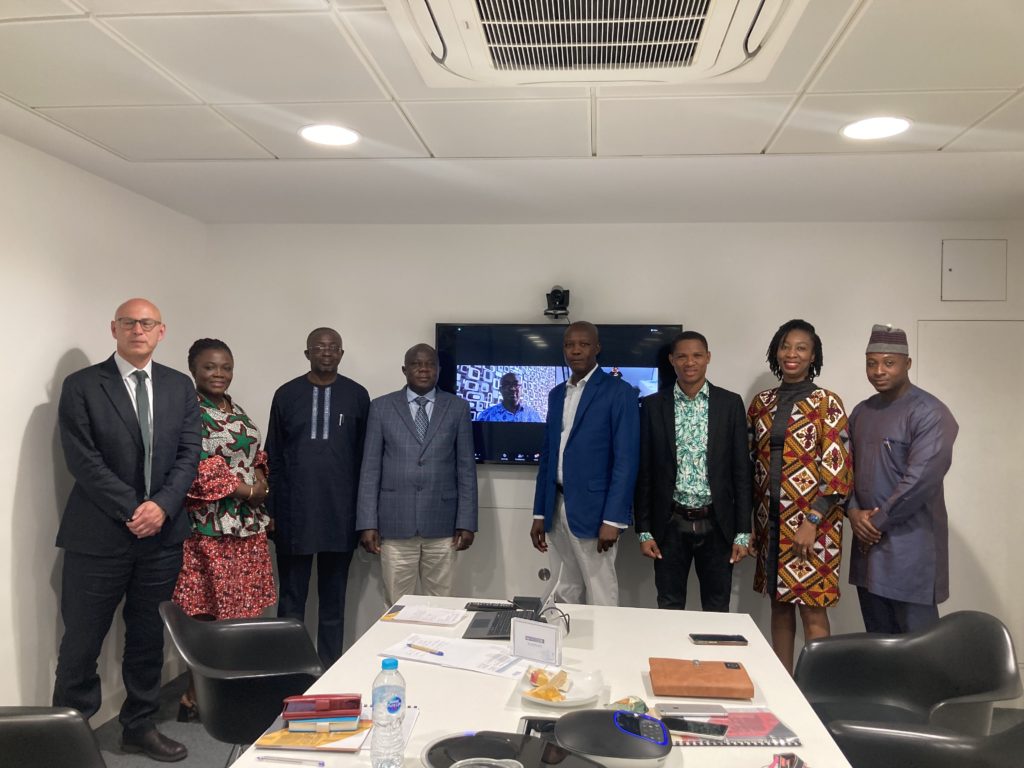
The Visit:
On 18 July 2022, our delegation set off from the UK to Ghana to take part in a series of engagements with key stakeholders. Facilitated by The Australian High Commission in Ghana, and the British High Commission in Ghana, our visit was highly productive with numerous fruitful discussions on the legislative amendments tabled to abolish the death penalty in Ghana. Below are photographs of our engagements with key CSO’s and stakeholders in Ghana:
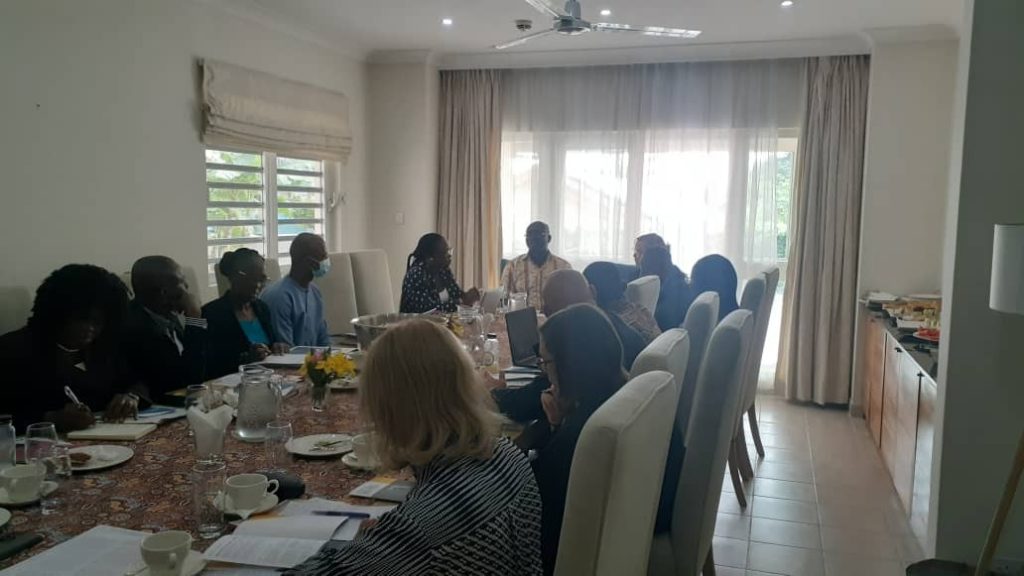
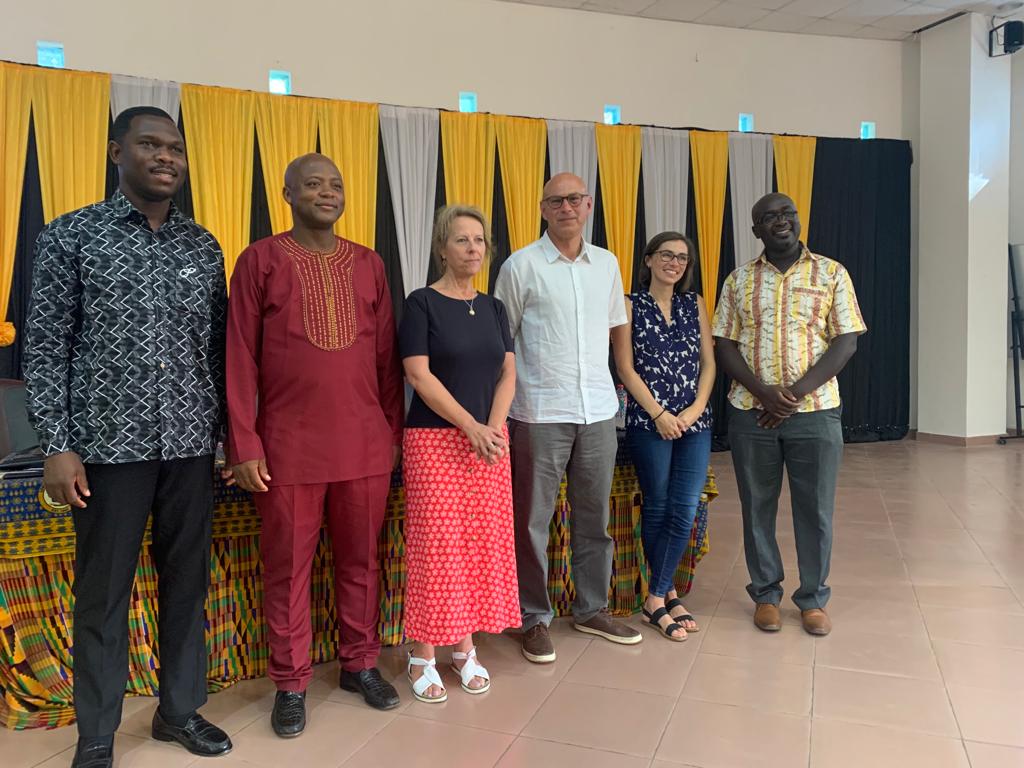
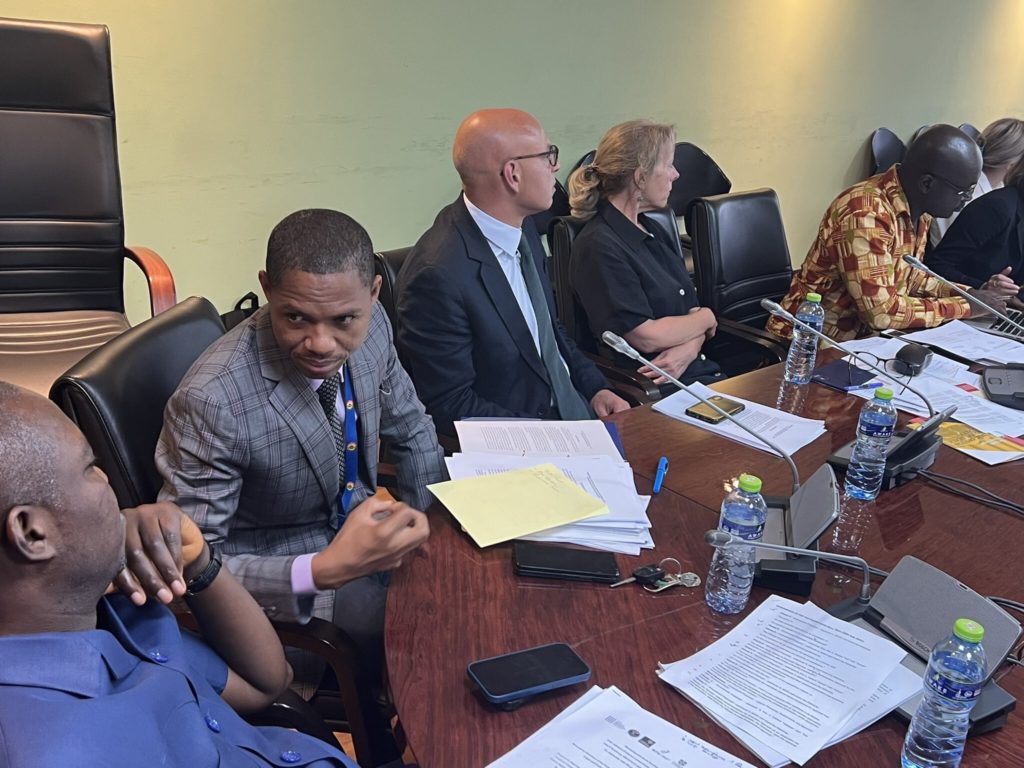
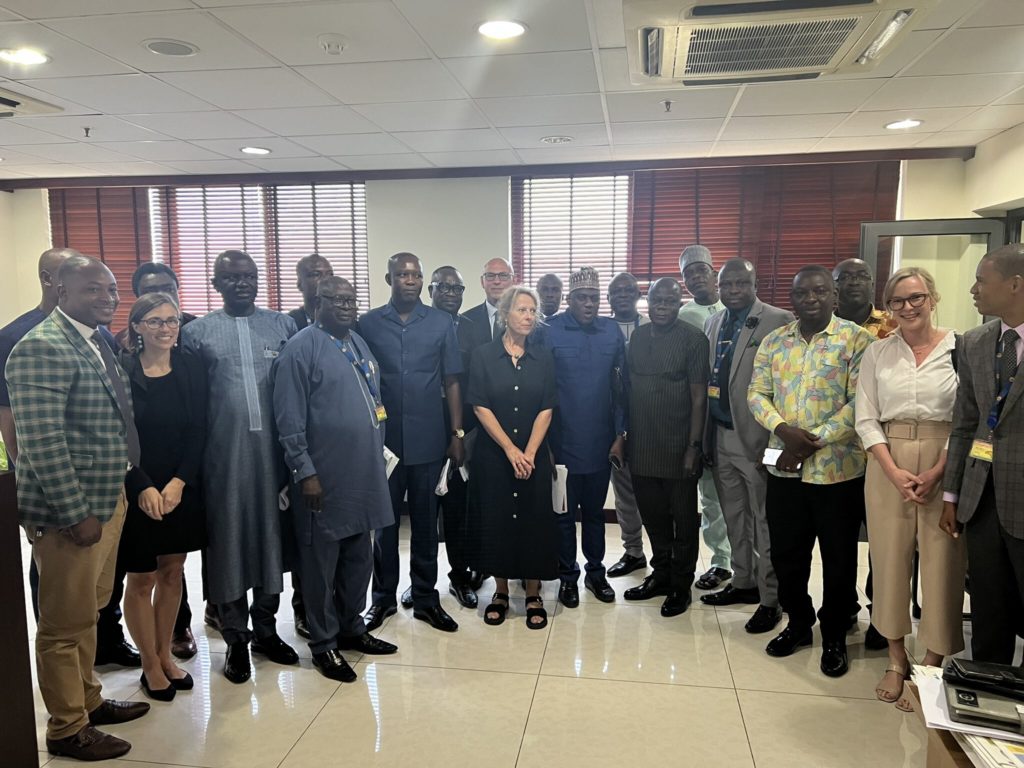
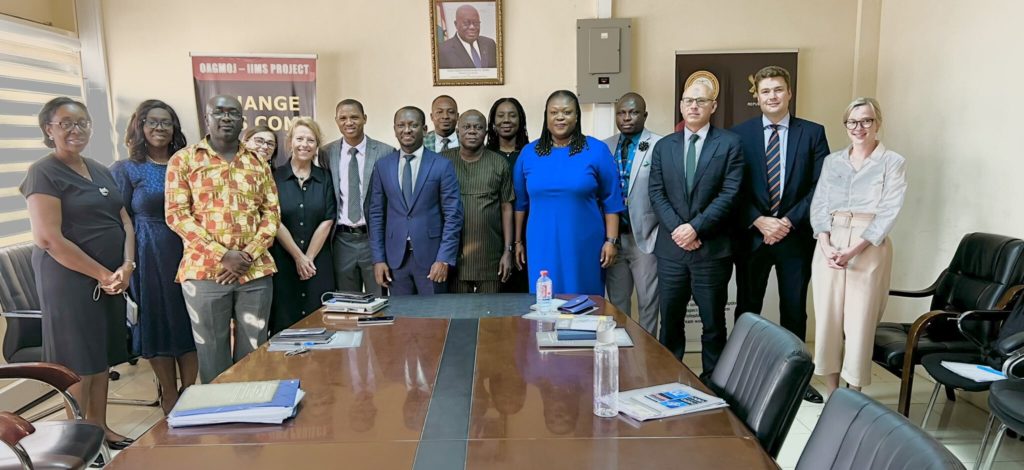
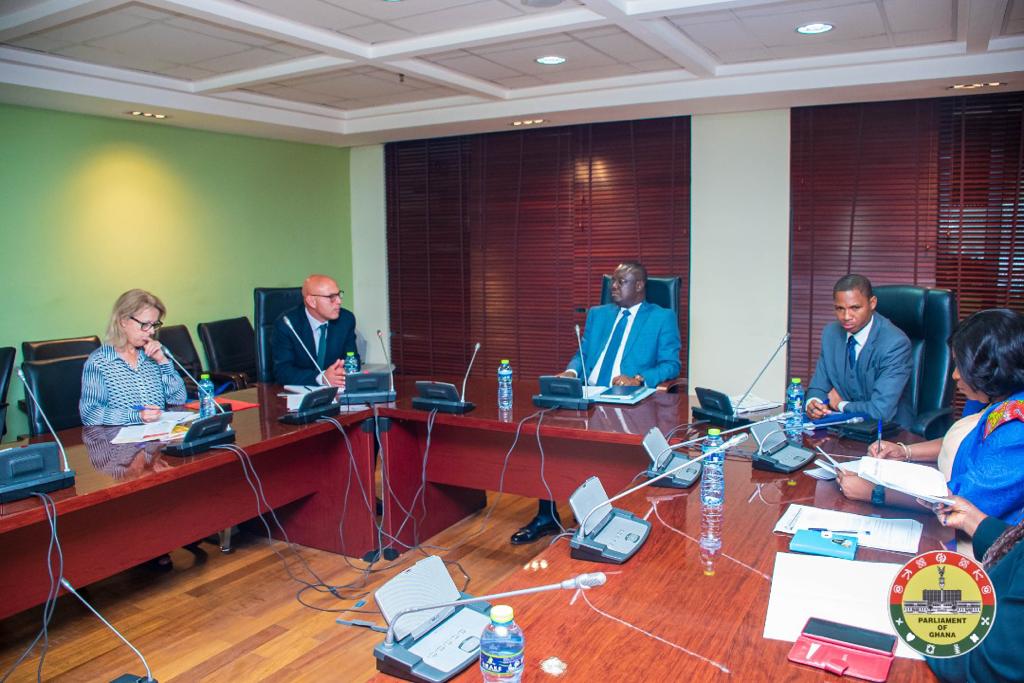
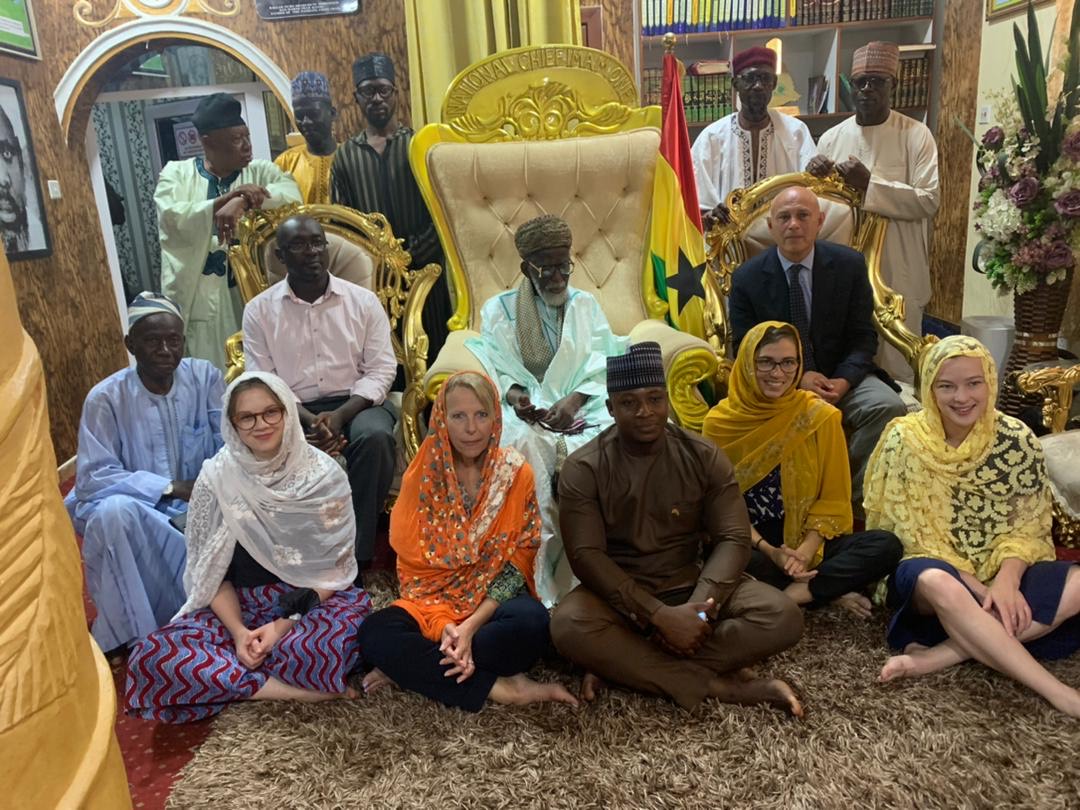
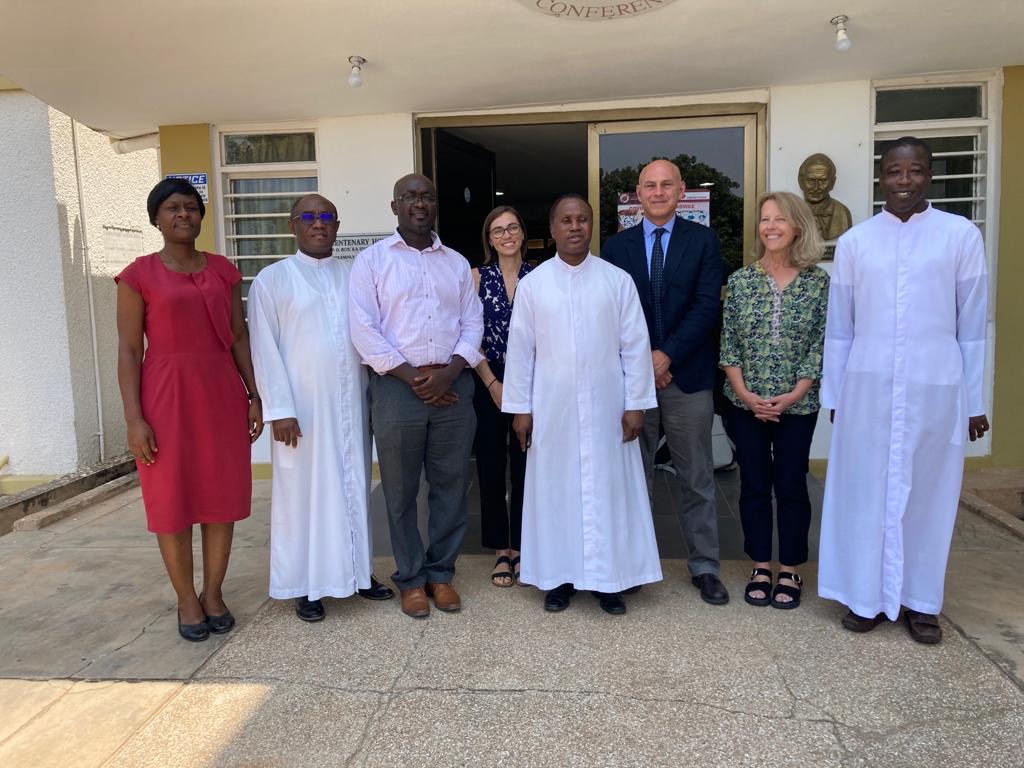
Our trip also received notable positive media attention, with articles on our visit in The Pulse, News Africa and in ABC Ghana.
We would like to thank everyone we engaged with during our trip and for meeting with us to discuss this important issue. We would like to pay special thanks to Abdul-Razak Yakubu, at the British High Commission and Hannah Crothers at the Australian High Commission in Ghana for facilitating the meetings.
We are delighted to share that yesterday (25th July 2022) Ghana MP’s led by MP Francis-Xavier Sosu successfully introduced the Criminal Offences (Amendment) Bill 2022 and the Armed Forces (Amendment) Bill 2022 before parliament for the abolition of the death penalty for ordinary offenses. The bills were gazetted on Friday 24th June 2022 and had their first reading on Friday 22nd July 2022. This marks a crucial and significant step towards the abolition of the death penalty in Ghana.
In the coming weeks, we will continue to build on the positive discussions and offer our support to those we met with in Ghana who share our vision of a future free from capital punishment.


















